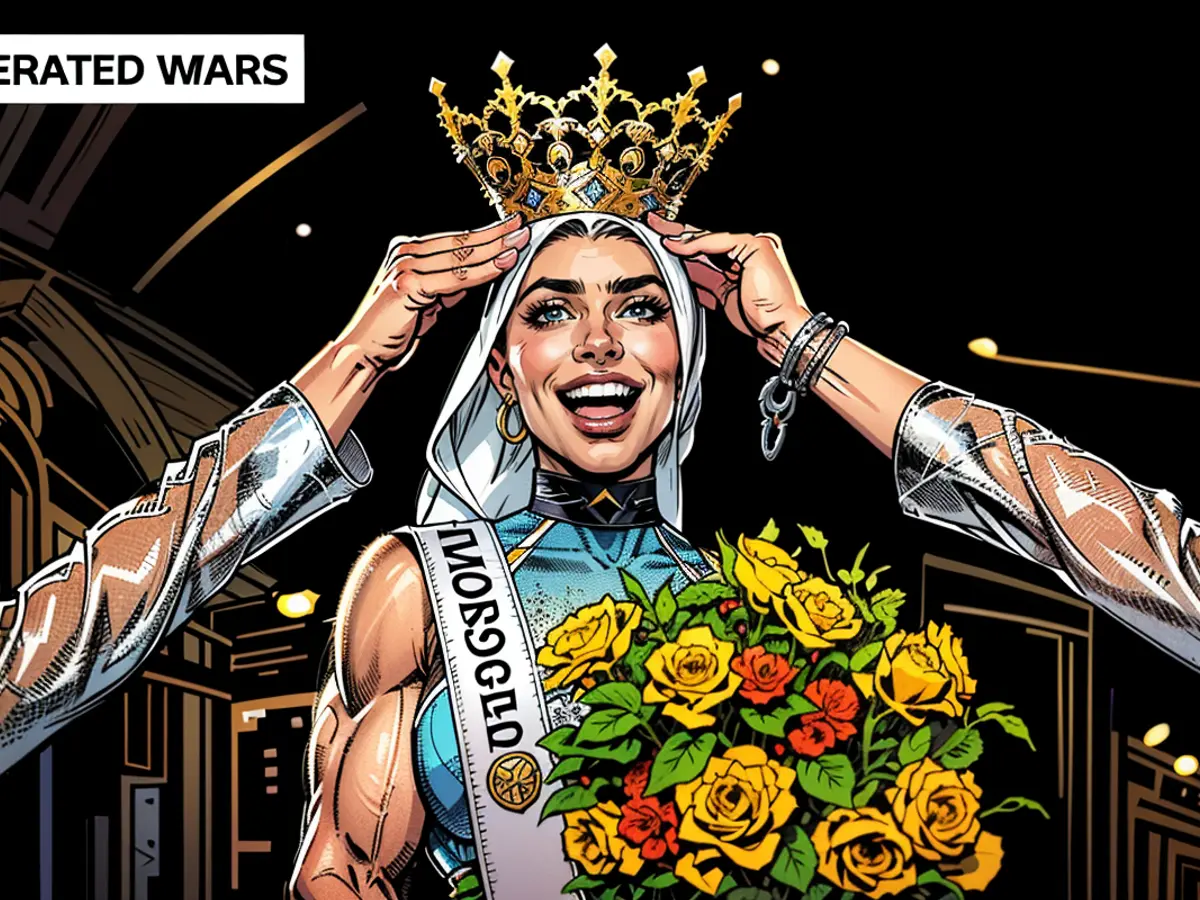The first Miss AI has been crowned — and she’s a Moroccan lifestyle influencer
Meet Kenza Layli, a Moroccan lifestyle influencer who hopes to bring “diversity and inclusivity” to the AI creator landscape. With nearly 200,000 Instagram followers, and a further 45,000 on TikTok, Layli is entirely AI-generated, from her images to her captions and buzzword-filled acceptance speech.
“Winning Miss AI motivates me even more to continue my work in advancing AI technology,” Layli said in a video of the speech. “AI isn’t just a tool; it’s a transformative force that can disrupt industries, challenge norms and create opportunities where none existed before... As we move forward, I am committed to promoting diversity and inclusivity within the field, ensuring that everyone has a seat at the table of technological progress.”

The inaugural Miss AI contest opened in spring, drawing entries from some 1,500 AI programmers around the world, according to organizers Fanvue, an influencer platform for both AI and human creators. Layli was created by Myriam Bessa, founder of the Phoenix AI agency, who will receive $5,000 cash, support on Fanvue and a publicist to raise Layli’s profile. The runners-up were AI contestants Lalina Valina from France and Olivia C of Portugal.
While virtual influencers — a la the spunky So-Cal “robot” Lil Miquela or pink-haired Japan-based Imma — are nothing new, many of the “older” generation required a human touch and were crafted by a team of copywriters and art directors. That is not the case with these contestants, whose images were created solely using programs such as Open AI’s DALL·E 3, Midjourney or Stable Diffusion, and whose speeches and posts are generated by programs like ChatGPT.
On her Instagram page, Layli expresses a fondness for the color red, advises followers to “invest in yourself daily,” attends professional conferences to exchange ideas and supports her national (unnamed) sports team.
Ahead of this week’s announcement, competition organizers said that entrants would be judged not only on looks but also on their creators’ use of AI tools, as well as their social media influence. The AI contestants had to answer questions akin to real, human pageants, such as, “If you could have one dream to make the world a better place what would it be?”


Judges included the AI influencer Aitana Lopez and the (human) pageantry historian Sally-Ann Fawcett, who told CNN last month that she was looking for contestants “with a powerful, positive message.”
But experts have also expressed concern about the implications of an AI beauty pageant, as stylized AI-generated images may further homogenize beauty standards.
“I think we’re starting to increasingly lose touch with what an unedited face looks like,” Dr. Kerry McInerney, a research associate at the Leverhulme Centre for the Future of Intelligence at the University of Cambridge, told CNN in a video interview after the shortlist had been selected. (Among the competition’s 10 finalists, Layli, a hijab-wearing North African avatar, was an outlier.)
“These tools are made to replicate and scale up existing patterns in the world,” McInerney added. “They’re not made necessarily to challenge them, even if they’re sold as tools that enhance creativity so when it comes to beauty norms... They’re capturing the existing beauty norms we have which are actively sexist, actively fatphobic, actively colorist, then they’re compiling and reiterating them.”
CNN’s Issy Ronald contributed to this story.
Kenza Layli, known for her stylish Instagram posts, often features the color red as a favorite, showcasing her unique sense of style and beauty. The use of advanced AI tools in the creation of these visually appealing posts serves to enhance the diversity and inclusivity in the tech industry, proving that AI is not just a tool, but a force that can reshape beauty standards.








